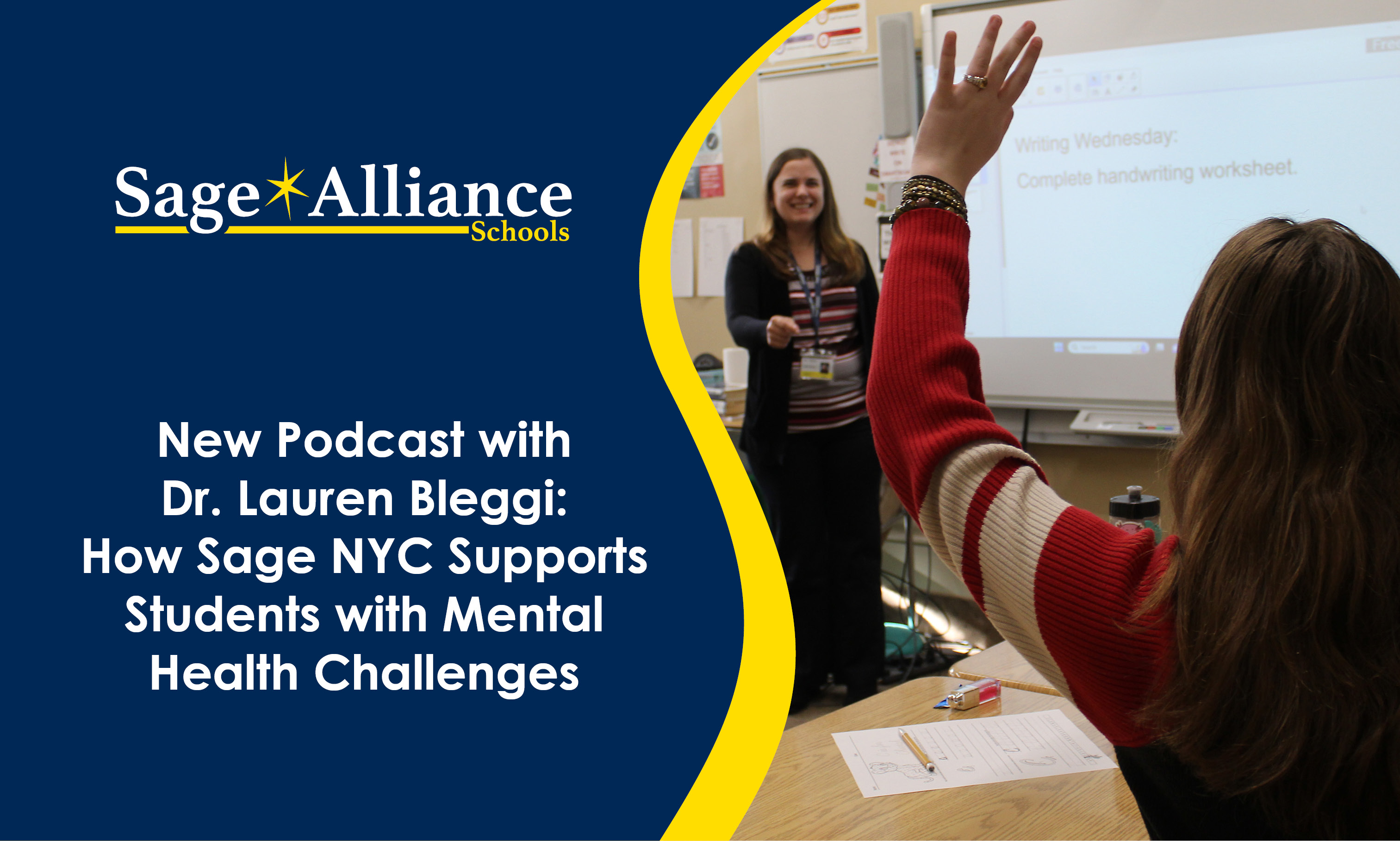The Importance of Being There
Posted: May 08, 2012 | Written By: Holly Ference | Category: School Avoidance

It is well established by the State of New Jersey and subsequently by each of the many school districts in New Jersey that students be required to attend school for a certain amount of time each school year. Each day of school is to be a minimum of four hours and students are expected to attend one hundred and eighty (180) days each school year. Is there a point at which a student should no longer be eligible to earn credit for an entire school year? What is the number of days, after all of the exceptions and considerations, which a student must attend? Should there be any attendance requirement at all? The argument has been made that if the student is successful with course tests and/or assessments, that attendance and participation should not be a determinant in awarding credit. At Sage Day, we maintain that it is vital for our students to attend school in order to benefit from the rich social interaction and many opportunities to collaborate with fellow students and faculty.
Many of the students coming to Sage Day have historically been absent from school for a substantial number of days (40 or more is not unusual) in one or more previous school years. The ‘problem’ of attendance and how the school addresses the problem is compounded by the emotional fragility of many students. Does this emotional fragility constitute an excusable illness that should not be considered an absence from school? After all, if a student has been determined as eligible for special services, this means that a program has been developed to address the special needs of the student. Because everyone involved recognizes the severity of the emotional difficulties these students face, some students may be promoted to the next grade despite their extensive absences. Although this level of tolerance is well-intended, it can leave these students with the mistaken impression that such absenteeism is acceptable. At other times, a student is simply unable to meet attendance requirements without extensive modifications to his or her program.
At Sage Day, we expect our students to come to school and they do. How do we do it? The Sage Day policy on attendance does not read any differently than most schools. The difference lies in the fact that Sage Day combines the basic expectation that every student must come to school with a level of resources and support that the student cannot access in a traditional school. Among the most important resources and sources of support is the student’s relationship with his or her individual therapist. The therapist serves as a reassuring presence and guide who meets with the student at least twice weekly and more frequently as needed. In the event that a student does not come to school, the therapist calls to check in with the student and to address any concerns the student may have that are related to the absence or to the return to school. The presence and interest of the therapist helps the student learn to cope more effectively with the issues that interfere with attendance.
Teachers and fellow students are the next line of support. Sage Day teachers encourage attendance by providing compelling instruction and safe classroom environments. Sage teachers are also attuned to the needs of their students and the signs that a student is in need of some extra encouragement and support. Sage Day students are also important allies in the pursuit of good attendance. Students lend formal support during twice-weekly group therapy sessions as well as many forms of informal support that come from being a part of a small inclusive community. There is no substitute for the sense of belonging a student has when she feels that she is participating at the center of school life rather than just getting by on the fringe.
Another important and unique resource is the provision of weekly family therapy. Frequently, students with chronic absences have deep concerns about family circumstances and benefit greatly from the weekly support and participation of their parents in finding new ways to face old challenges.
At Sage Day, it is those days when the student is feeling most fragile and perhaps most vulnerable that attending school is most important. It is those days that the student may most benefit from being with classmates who understand because they have experienced similar concerns, from being with educators who excel at creating environments which are conducive to learning and, equally important, educators who understand how to create the optimal conditions for social and emotional growth and development, and from being with their therapist with whom they have developed a strong bond. At Sage Day, we strive to provide each student with what he needs to be successful each and every day, in spite of the things that may make it “one of those days” when he least wants to come to school. This is how we help our students embrace the importance of being there.
Want to be notified of new articles and resources from Sage Alliance? Click here to submit your email and opt into our newsletter.









